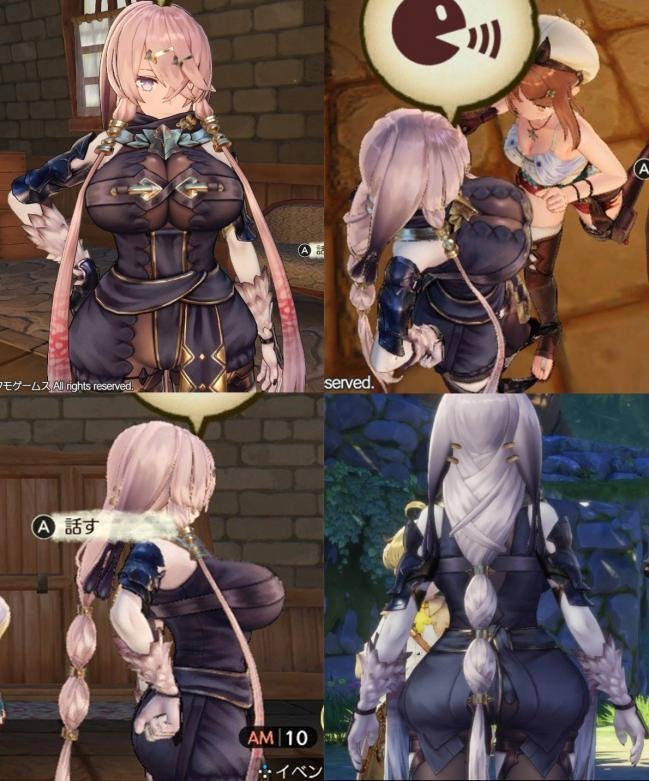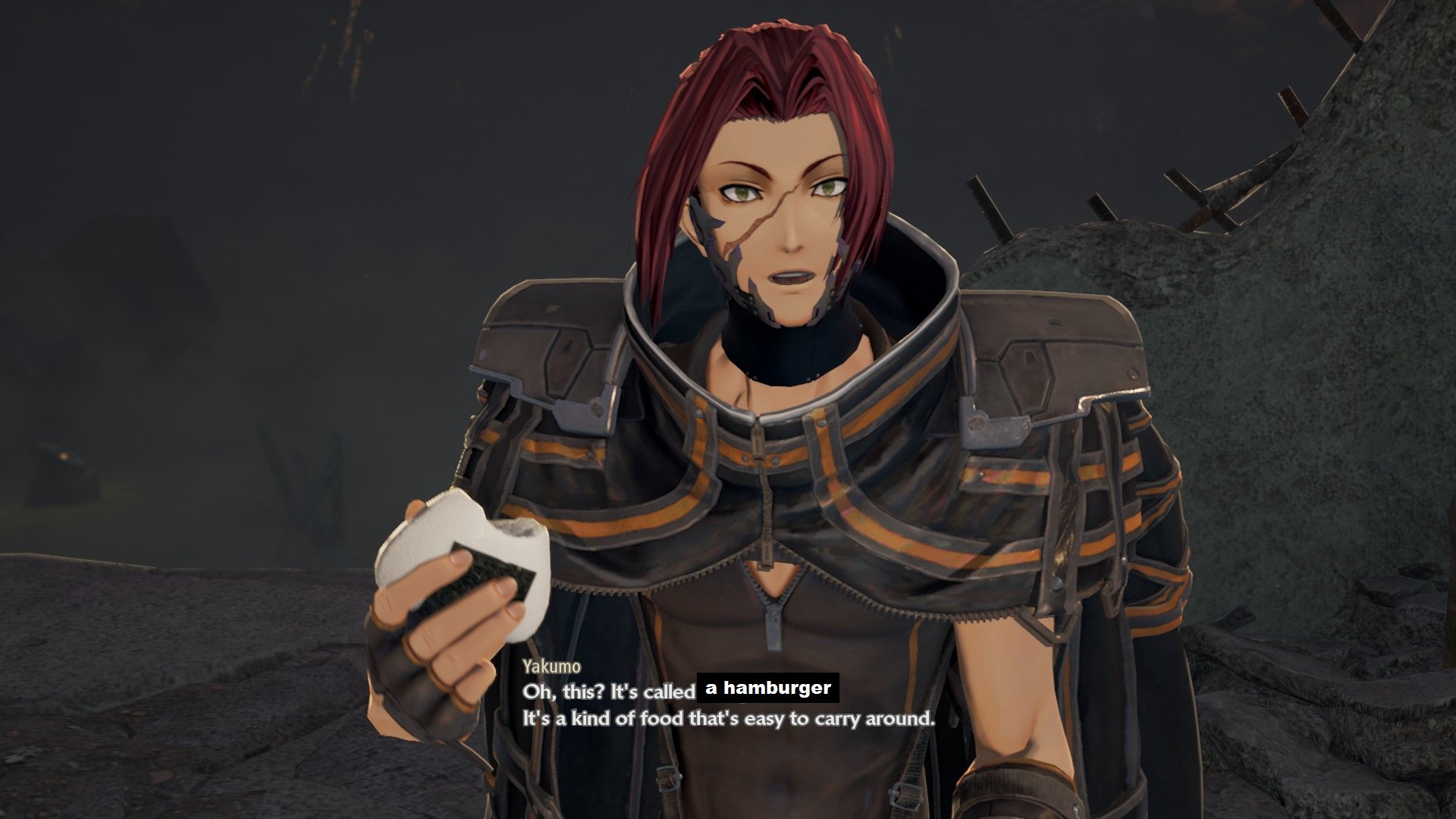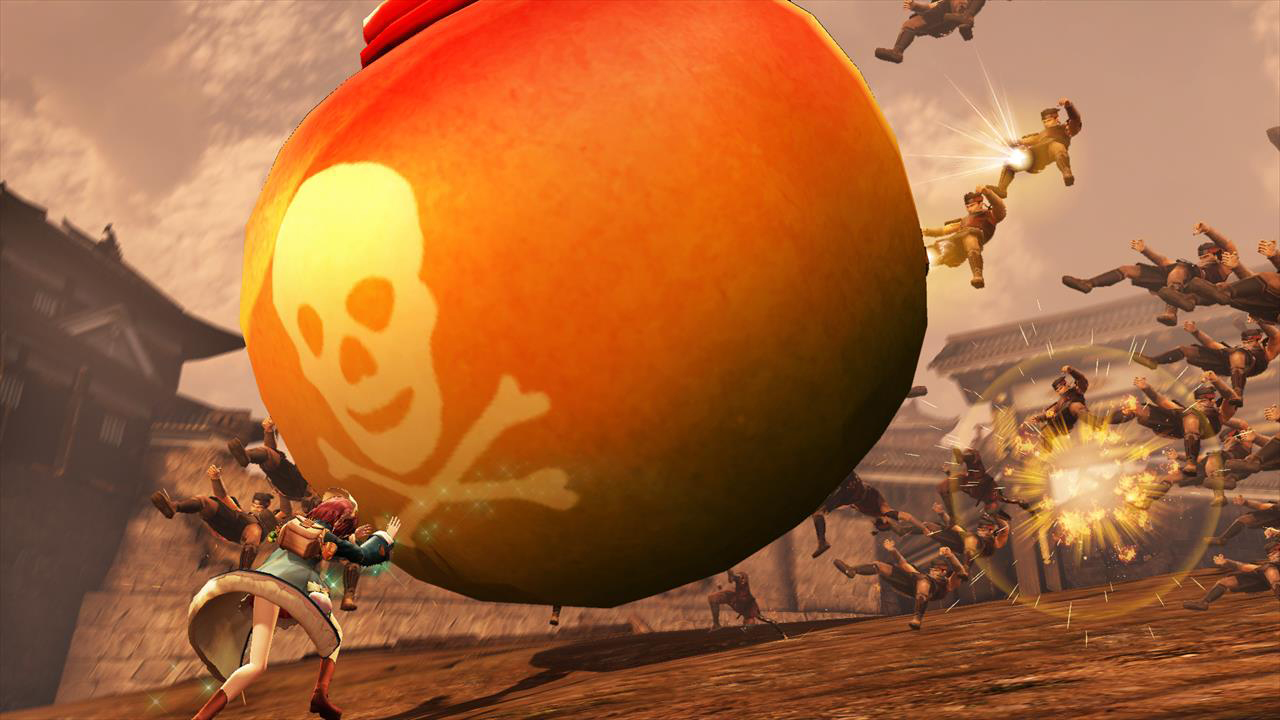Community MetaSteam | September 2019 - Valve, I Know What You Did Last Summer!
- Thread starter lashman
- Start date
You are using an out of date browser. It may not display this or other websites correctly.
You should upgrade or use an alternative browser.
You should upgrade or use an alternative browser.
- Status
- Not open for further replies.
Side note: I have always loved that valve "logo" or er.. mascot. I can still hear the sound that used to play when it showed while booting up Counterstrike pre-steam. I am not sure if they show it anymore its been a while.
Found it. I guess they still do the sound, I havent played a Valve game in years.
Found it. I guess they still do the sound, I havent played a Valve game in years.
Deleted member 113
Guest
I bought the Humble Sakura bundle because I wanted to try Hunie Cam and Hunie Pop... I haven't redeemed the other games yet. Just say the word and they're all yours (Sakura -> Agent, Fantasy, Beach, Beach 2, Angels, Spirit, Swim Club, Nova, Space, Shrine Girls, Magical Girls, Santa).
Thanks for the kind offer, but I meant publisher SakuraGame (Steam Publisher: SakuraGame), and not the games in the "Sakura" series.

They have lots of games with "fan service" as well, but a few of their titles may be worth a look.
I own The Vagrant, and it's well worth the asking price:
And I have a few games I may be getting, such as:
Although I thoroughly dislike generic anime kawaii garbo, I REALLY enjoyed Recettear (even though the dungeons were, at best, boring)... would you recommend Atelier Sophie? Is it in any way comparable?Sophie is the first one that came to Steam, the cheapest, the start of a trilogy, and very good.
D'oh!Thanks for the kind offer, but I meant publisher SakuraGame (Steam Publisher: SakuraGame), and not the games in the "Sakura" series.
Lol @ people suggesting a Switch port.
What makes me happy, when out of the blue a game gets a Mac version! Bought Seasons after fall at release back in 2016 and now finally I can play it haha!
Deleted member 113
Guest
Another point & click adventure game was just released:
This one looks lovely. I bought it a while back on itch.io, and the game is visually very charming.
This one looks lovely. I bought it a while back on itch.io, and the game is visually very charming.
By the way you in France familiar with micromania, how does it work? Say I want to sell or trade a game? I'm assuming selling it you get very little while trading you get more?
This game looks really cool,
I am interested in this, looks sort of like The Witness. But that price is too rich for me to go in blind.
I am interested in this, looks sort of like The Witness. But that price is too rich for me to go in blind.
he finally made the video:
Is the game even good? It looks quite mediocre
Weebs souls stronk.

Weebs souls stronk.
This should be Namco’s 4th highest concurrent player count of all time unless im forgetting something. Only behind DragonBall FighterZ, Dark Souls 2 and Dark Souls 3. All of which are from established IPs compared to Code Vein.
A lot of Namco games peaked in the 20k range, but all of them below 26k.
he finally made the video:
Gimme a rundown of the points he discusses.
Aokana is in the 19th place in the global top sellers, that's not bad at all for a niche VN
edit: 16th place now

edit: 16th place now

Last edited:
Nobody:
Me at age 14 playing with character creation sliders :

Me at age 14 playing with character creation sliders :

Alternative:Nobody:
Me at age 14 playing with character creation sliders :

Me: Going to town with the liquify tool in Photoshop for the first time
I'll probably get Ryza day one the only question is which shop and if I'll be gettiong the deluxe or normal edition.
Also hype is through the roof
Also hype is through the roof
The deluxe edition content seems to be just some recolors of the main costume.I'll probably get Ryza day one the only question is which shop and if I'll be gettiong the deluxe or normal edition.
Also hype is through the roof
Also:
But I'm a sucker for costumesThe deluxe edition content seems to be just some recolors of the main costume.
I mean, I only use RAITA artwork as my desktop wallpaper...Also:
Last edited:
I now like PC Gamer

 www.pcgamer.com
www.pcgamer.com
(they liked my OlliOlli 2 and Downwell covers) .

You can add animated icons to the new Steam library, and it looks awesome
Bring your Steam collections alive with animated .pngs.
(they liked my OlliOlli 2 and Downwell covers) .
First comment: "Yay, more pointless features instead of fixing actual problems."I now like PC Gamer

You can add animated icons to the new Steam library, and it looks awesome
Bring your Steam collections alive with animated .pngs.www.pcgamer.com
(they liked my OlliOlli 2 and Downwell covers) .
I agree, anime tag must be a mandatory category on every account.First comment: "Yay, more pointless features instead of fixing actual problems."

First comment: "Yay, more pointless features instead of fixing actual problems."

Dude's post history tells you everything you need to know. He's one of the "I dont care about these features so nobody does" morons.
I hate the library what is new section, is useless just random weighted stuff.
The just updated in the store is way more useful and informative...
The just updated in the store is way more useful and informative...
Nah, fuck consumers, why bother when you just need influencers and kind hearted billionaires to take care of poor developing you?
Is Steam loading slow just for me?
Not just you. The client is running slow for me, and the web client has been giving me all kinds of errors today and just not loading. I'm assuming they're working on backend stuff that's tanking the servers.
Probably processing all those Ryza preordersIs Steam loading slow just for me?
The Store was basically broken an hour ago when I tried to look at stuff.Is Steam loading slow just for me?
well, I didn't realize it was LIKE this...it looks actually deformed lolNobody:
Me at age 14 playing with character creation sliders :

The Store was basically broken an hour ago when I tried to look at stuff.
yeah, seems like they're working on something
Yes, I fully recommend Sophie.Although I thoroughly dislike generic anime kawaii garbo, I REALLY enjoyed Recettear (even though the dungeons were, at best, boring)... would you recommend Atelier Sophie? Is it in any way comparable?
I'm not sure how comparable they are though. Atelier is all about crafting. The gameplay loop is essentially "craft thing -> fight enemies and gather materials -> craft better thing -> fight stronger enemies and gather better materials"
And it's extremely satisfying because crafting is essentially a full-blown puzzle mini-game and basically everything you use in combat is made by yourself.
It's a ton of fun learning the system and coming up with ways to create ridiculously strong consumables and equipment.
Also Puni Missiles


CODE VEIN can be a really pretty videogame






|OT| - Freedom Finger - Shoot 'em Up, Punch 'em Up, F&#$ 'em Up!
Wide Right Interactive Developer Wide Right Interactive has announced Freedom Finger, a music-driven, hand-drawn shoot ’em up coming to PlayStation 4, Xbox One, and PC in 2019 From the minds of Jim Dirschberger and Travis Millard comes an irreverent shoot ‘em up, with completely hand-drawn...

|OT| - Freedom Finger - Shoot 'em Up, Punch 'em Up, F&#$ 'em Up!
Wide Right Interactive Developer Wide Right Interactive has announced Freedom Finger, a music-driven, hand-drawn shoot ’em up coming to PlayStation 4, Xbox One, and PC in 2019 From the minds of Jim Dirschberger and Travis Millard comes an irreverent shoot ‘em up, with completely hand-drawn...metacouncil.com
For one second I thought that said "Freedom Fighters"

When at the time I've seen the first footage of Code Vein I wasn't convinced about the animations...and they seems exactly the same, kinda wonky and stiffy judging from the videos
thanks for the detailed description!Yes, I fully recommend Sophie.
I'm not sure how comparable they are though. Atelier is all about crafting. The gameplay loop is essentially "craft thing -> fight enemies and gather materials -> craft better thing -> fight stronger enemies and gather better materials"
And it's extremely satisfying because crafting is essentially a full-blown puzzle mini-game and basically everything you use in combat is made by yourself.
It's a ton of fun learning the system and coming up with ways to create ridiculously strong consumables and equipment.
Also Puni Missiles

I was actually under the impression that the atelier series had some shop management thing going on... this is why I mentioned Recettear!
Last edited:
Yes, I fully recommend Sophie.
I'm not sure how comparable they are though. Atelier is all about crafting. The gameplay loop is essentially "craft thing -> fight enemies and gather materials -> craft better thing -> fight stronger enemies and gather better materials"
And it's extremely satisfying because crafting is essentially a full-blown puzzle mini-game and basically everything you use in combat is made by yourself.
It's a ton of fun learning the system and coming up with ways to create ridiculously strong consumables and equipment.
Also Puni Missiles

warriors all star though

warriors all star though
this is exactly why the idea of the recent Nelke game was so entrtaining to me aka lets group all the girl alchemists with nuclear level arsenal to build a town
And today is its first weekend. It'll go even higher than that, though I'm not sure if it'll reach 30k or not.
Weebs souls stronk.
Code Vein is probably one of those games where I could spend two hours in the character editor alone. Seems pretty cool.
Not saying Code Vein doesn't deserve those number, don't know yet, but The Surge 2 definitely deserves more than its 2.000 players.
Patch against stuttering:

 steamcommunity.com
steamcommunity.com

 steamcommunity.com
steamcommunity.com
Patch against stuttering:

Steam :: The Surge 2 :: Update #1 is LIVE!
Hello everyone! Our first update is live! Thanks to reports from all of you, we have been able to identify and resolve a number of technical issues. Also, we updated our beta branch liveops_beta (accessible through right clicking on Surge 2 in your library> Properties > Betas) with an even more...

Steam :: SpellForce 3: Soul Harvest :: It’s Oktoberfest time! SpellForce 3: Soul Harvest get's a free Bavarian DLC
Vienna/Austria and Munich/Germany, September 26th, 2019 – One crisp fall morning, General Aerev received an urgent letter from Queen Ayelith. It reads as follows: General, Reports have informed us of a barbaric ceremony taking place in the distant land of Bavaria: the „Oktoberfest.“ While no one...
Reports have informed us of a barbaric ceremony taking place in the distant land of Bavaria: the „Oktoberfest.“
While no one knows the exact nature of the dark transgressions transpiring there, scouts report blasphemy and debauchery of unparalleled dimensions. Intoxicated by excessive amounts of alcohol and hypnotized by unholy tunes called “Blasmusik,” the Oktoberfest is said to break even the most virtuous spirits — prompting men and women alike to break into salacious dance and mindlessly roar along to music of questionable taste.
For the sake of morality and all that’s good and holy, Your Queen commands you to foray into Bavaria, seize control of the ceremonial grounds, and put an end to this debauchery. A specialized general from Bavaria with knowledge of native battle tactics shall aid you in your endeavors.
If possible, do return a barrel of “Wiesnbier” to Nortander upon emerging victorious. Or two. For, uhm, research.
Last edited:
I blame the numbers on Focus strategy, the first game had some success but they haven't offered a big discount for the game+dlcs. So they had no momentum for the launch of 2, they should have brought more people to the universe to get them excited about a sequel.Not saying Code Vein doesn't deserve those number, don't know yet, but The Surge 2 definitely deserves more than its 2.000 players.
-Could be huge if it not's overturned on appealGimme a rundown of the points he discusses.
-The court ruling vindicates his previous video on GAAS = fraud
-Will end up being EU wide and then good luck keeping it locked down just to the EU
-It is unlikely it will be limited to Valve in the long run
-used digital games for 'non-subscription games' would be a thing
-publishers will hate it, as they have all forms of previously owned
-Big AAA games will adapt or at least survive - smaller titles and indies might not be able to
-he's not seeing it as a good thing because of the indie/smaller title issue
-there will be a swath of users who want to sell their games
-He's fine not being able to resell in exchange for benefits - money to devs, sales
-game flipping and middlemen will benefit most - not as valuable as physical special editions to them though anyway
-scarcity for digital games is artificial
-delisted games become most valuable in such a system
-developers eat the cost for people flipping/reselling
-The problem is not about gaining the right to own their games, but the ability to lose/remove the right to a game (ie people dont want to keep the game, they want the right to give it away/sell it)
-games industry waging war on ownership still - this case will help towards stopping publishers shutting down and games lost to history will be fewer and farther between - may also be good for right to repair/preservation/etc in the future, even if it's not the desired goal here.
-subscription games are left out of the loop on this (MMO type games - World of Warcraft), as are free to play
-incentivises subscription fees - but market/infrastructure not there to support over a certain amount of actual subscription services (see MMO wars)
-games where no subscription fee is part of the problem - selling games as goods, running them as services but providing responsibilities for neither is the problem
-being sold 'clients' or 'games bought as a good' that is shutdown (Anthem, destiny) - would be frowned upon as the good ceases to function without the servers/access themselves still being there
-selling games as actual services - giving games an actual end date would lower sales OR if a game bombs - publishers would have to provide the game service for the entire time frame promised even if it was financially unprofitable
-used games hit in pocketbook < paying for all games as actual service; in terms of which could view as worse
-loopholes in what 'games as a service' actually defined as might be the publisher reaction - free to play also a grey area
-he believes there should be something for after end of life support - allow patching/fan servers/etc
-Publishers fault for moving the industry to this and the court's verdict is the nth degree as a result of how shitty a business model it
-He wants 'everybody wins' result, believes publishers want to give gamers even less - believes it's unlikely his outcome will occur - at least not in full
-Valve is enabler of loss of ownership, not the source of the problem
-government not the problem here - working as intended in this case and not overreaching - consumer group brought the case, not government itself
-the consumer group may have gone too all in and not intended such a drastic outcome, sees it as a bad move on their part in away
-wants to contact this group, as they are successful at getting things changed/done and he wants to see if they can be helped with game preservation/etc
Last edited:
I blame the numbers on Focus strategy, the first game had some success but they haven't offered a big discount for the game+dlcs. So they had no momentum for the launch of 2, they should have brought more people to the universe to get them excited about a sequel.
The game was on sale for 75% two times in the 4 weeks, got steadily increasing discounts before that and it was also in August's Humble Monthly (edit: 2018). Also lots of streamer were and are playing on Twitch. Not sure what more they could've done tbh.
Last edited:
- Status
- Not open for further replies.



